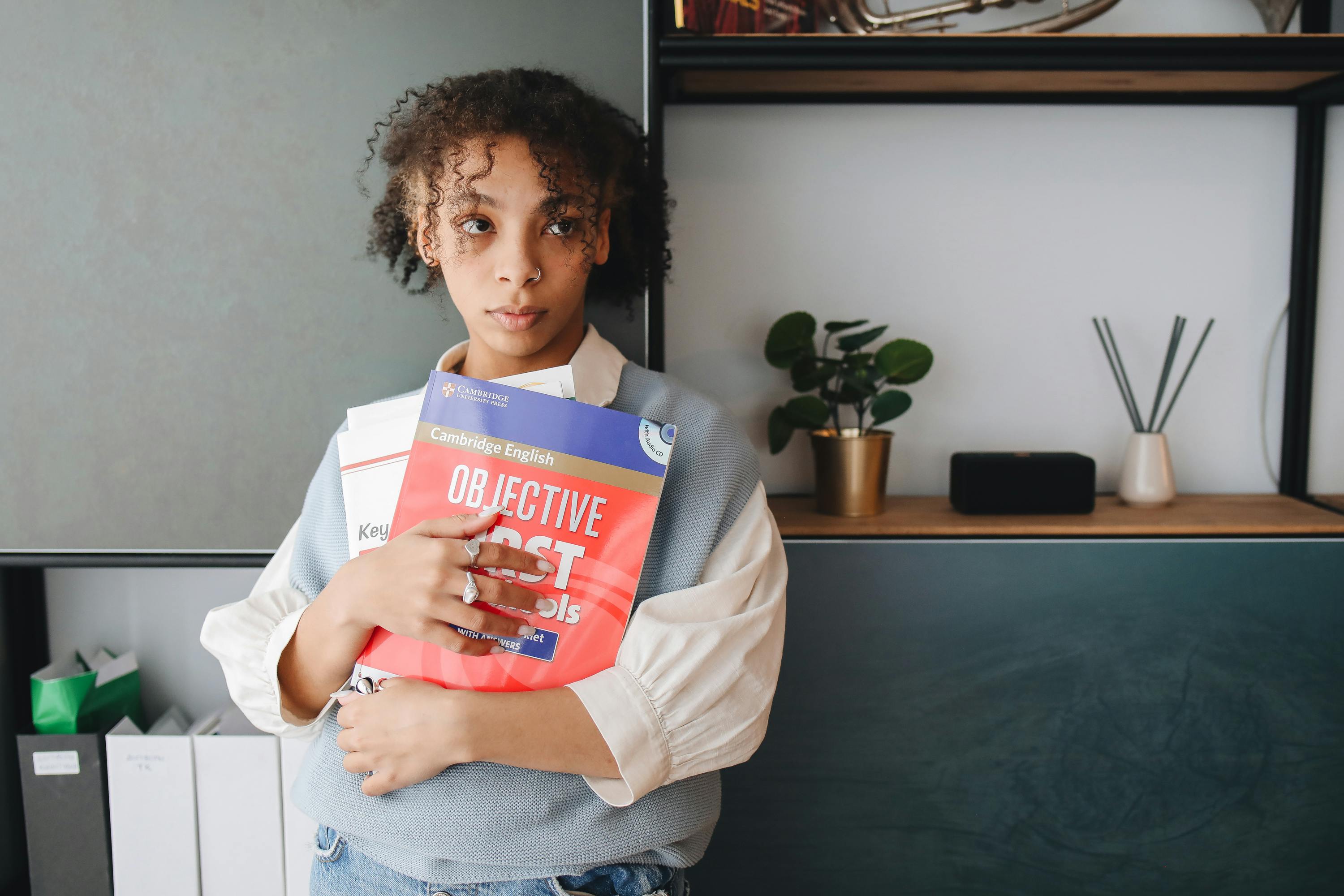From Enugu to Oxford: Inspiring Story of Nigeria’s First-Class Graduate
Odinaka Akpamgbo graduated with a First Class in Law from both Enugu State University and the Nigerian Law School, earning two national prizes. Now pursuing a Bachelor of Civil Law (BCL) degree at Oxford University on a full scholarship, he discusses his aspirations to make a global impact in law.
What inspired you to achieve such academic excellence, earning double first-class degrees in law from Enugu State University and the Nigerian Law School, and what has been the key driving force behind your success?
I consider myself fortunate to have been born into a family that highly values academic excellence. It was indeed a happy childhood, happier than most children would have been privileged to have, and I very well acknowledge that privilege. The privilege prevailed in the quiet city of Enugu. My last name was quite powerful, as I remember it, as my late great-uncle had been the Attorney-General of the Federation at some time during the less than popular military regime in Nigeria. Another uncle was also a recognized lawyer in Enugu, before his recent passing. Although I never saw or remained in touch with either of them (I may have seen my great-uncle once, I must have been a babe if I did) their legacy infused my childhood, at home and school; it must have also infused my elder brother’s, as he became a star and a great warrior on any academic battlefield earlier than I did.
The point I labour to make as it now seems is that there were standards, and the standards were high. My surname symbolised legal power. What perhaps made it overkill was that I bore a fond passion to don a wig and a gown and argue like many women (and some men). It was overkill because when I attempted it, academic success was not elusive. It was like the shoes were there, and all I had to do was step into them.
- N/West Women Commissioners Advocate for Inclusion in Security Council Meetings to Address Regional Insecurity
- Alhaji (Dr) Abdulrahman Ado Ibrahim CON: The prince born to be king
I would be guilty of not being complete, if I did not state that I also possessed some base desires, and one of them was power. This was because I was often bullied by brutish boys, and gaining enough power in any classroom would tilt the power scales in my favour (and it did). Now that I am talking about it, I should state that although most of this happened in secondary school, I still recognise a simmering darkness in many men and a propensity to apply power for the oppression of weak(er) people, and for not benign reasons. The darkness is no better than cowardliness, no better than evil. At its basest form it is bullying by children of children; at its greatest form it ruptures the world and triggers wars. We must all fight against this darkness before it ruins our world more than it already has.
And so, in lieu of it being imperative to uphold the legacy I had earlier stated as a matter of obligation, it was imperative to uphold it as a matter of necessity, and this did not change when I started my university education. My family provided me with a strong foundation, enabling me to identify my aspirations without being overwhelmed by vocational uncertainties. Yet, luck alone is insufficient; one must be prepared to seize opportunities. Being born in Enugu, as opposed to Western Nigeria and particularly Lagos, meant that I lacked advantage in exposure and information. To bridge this disadvantage, I had to exert additional effort throughout my academic journey.
I should close this answer by saying that I do not consider myself special; there are many people in the world, each with a complex state of being, ambitiousness, consciousness, self-awareness. Everyone is special, some even more special than others in reality, I should venture. I may have been unique, certainly not special. But whether I was special or not, I do not consider that one has to be special to achieve what I or others have achieved. Some of what I have achieved, include being the first person to hold a First Class from each of the Enugu State University and Technology (ESUT), and the Nigerian Law School, whilst winning prizes, as well as being the first person from ESUT to be pursuing the BCL at the University of Oxford.
What were the most significant challenges you faced in your journey to becoming a double first-class graduate, and how did you overcome them?
I faced a few common challenges, including limited academic materials and incessant strikes.
At the Nigerian Law School, I faced psychological challenges more than physical ones, although I fell ill a few times and had a persistent skin problem. The psychological challenges were rooted in the prevailing history, that in over 62 years, nobody had achieved a First Class from ESUT and successfully defended it at the Nigerian Law School. Perhaps, that was whilst it lasted, attributable to the Nigerian Law School’s grading system, where a single B+ amidst nearly parallel A results would reduce one’s classification from a First Class to an Upper Second. It is needless to say, but I will say it anyway for whatever it is worth, for I am not a self-effacing messiah: I defied this precedent and walked away with a Double First Class and two national prizes. Period.
Looking back at your journey so far, what moment stands out as your proudest achievement in your legal education?
My proudest achievements are constantly morphing. In the past, my answer to this question would have been “Attaining a First Class twice and receiving national prizes.” But it is not now, as each time I successfully tackle a challenging task, a more daunting and seemingly insurmountable one arises after it. It represents the endless struggle of humanity as complex as to find justification for their existence, or as simple as to make ends meet. On a lighter note, perhaps my proudest achievement was finishing as the best student in my cohort and winning a scholarship when I was about 14 years old, and prevailing over a bully in my class. It represented everything epic: good triumphing over evil, light over darkness. I did not sleep that night. That night gave me great joy; I do not think I have known any greater joy.
You received multiple offers for your LLM but chose to study at Oxford. What made you decide that Oxford was the right place for you?
It was not much of a decision really, and it required the littlest exercise of council. I had always wanted to attend Oxford for many reasons, from sillier and more childish ones that include that some people from my university had attended Cambridge, as has my brother, and I wanted to eat a cherry that nobody had bitten from first , to more serious reasons that include that Oxford is the oldest university in the English-speaking world, ranked the best university in the world a consecutive nine times by Times World University Rankings, and skulks a Faculty of Law as old as the 16th century.
Moreover, if we must be less pretentious, then we must mention that being in Oxford comes with a great deal of privilege, and a greater deal of assumptions. People often assume one possesses a high level of intellect upon learning that they attended Oxford, not least even because employers give your resume a second look when they see Oxford or Cambridge on it. Additionally, the programme I was to pursue (and under a full-ride scholarship) the Bachelor of Civil Law was so prestigious, so much prestigious that sending an acceptance email was a no-brainer, a cinch, no less a cinch than eating Nigerian jollof rice. I am indeed grateful to walk the walls and sit the halls of this esteemed institution.
How has the transition from studying in Nigeria to studying at Oxford in the UK been for you? What has been the most surprising aspect of this new academic environment?
The environment at Oxford meets all my realistic expectations (whether it exceeds them is the subject of another day ). The diverse people, the medieval buildings, the academic rigour, are otherworldly. The country, on the other hand, performs a little much less in comparison. It is incredibly cold, gets darker much faster, and no matter how great the food looks, they almost always manage to make it tasteless for people like me (either I have adapted to eating enormous quantities of spices, or they consider spices toxic). Nonetheless, I like the society; it is less judgmental and more empowering. The cold is kind to the skin, and the transport system is extremely impressive.
What are the biggest lessons you’ve learned at Oxford, both academically and personally?
The first one, is to exercise freedom. The second, is to engage with academic materials on more than a surface level, to find problems in them. People defy precedent here, make history. There is academic sophistication, an expectation of intellectual complexity, of synthesis of thought, of critical and logical thinking, of philosophical madness, so much so that sometimes I think the tutors and academics are complicating simple principles, or pushing the academic rubicon to two far extremes: either an idea is too simple (and in most cases it is not); or it is too convoluted that it makes too much sense and too little sense and understanding, let alone simplifying it, is a fool’s errand, and everyone in the classroom must be a fool. A shining example would be that any Oxford alumna who read my last sentence would challenge my assumption that there are only two far extremes, that they are extreme or extremes at all, that there is even a rubicon. The supposition that things are more intricate, much more intricate than they appear, is often unnecessary yet magical; it is our greatest pride, and yet our greatest undoing.
What aspects of your legal training in Nigeria have proven most valuable as you navigate the complexities of law at Oxford?
Unlike the UK, the Nigerian educational system doesn’t prioritize intellectual freedom as much. And rules often one-dimensional are followed rather slavishly. I am thankful to have taken some courses (that were the minority) in ESUT that lauded independent thought, such as Constitutional Law, Law of Torts, and Jurisprudence and Legal Theory. The irony is that I earned the worst grades in those courses as did the rest of the class and the level of intellectual superiority expected in them did not suggest that it was desirable to take them, and in fact undermined the desirableness of taking them.
Are there specific mentors or professors at Oxford who have influenced your thinking or approach to the study of law?
There are a few, but I may be too new to form any assumptions about Oxford professors; I will have an opportunity to do so before long. The assumptions I am not too new to form will be about a few of my ESUT lecturers. I am honoured to have been taught by Professor Frank Asogwah, Professor Osita Ogbu, Dr. Cyril Obika, Reverend Sister Maria Onuegbulam, Dr. Ife Ogbonna (deceased), Mrs. Ebere Amaefule, Mrs. Henrietta Agbowo- Egbo, and a few more. Some of them gave me less than admirable grades, but I admire them no less for what they represent: grit and empathy.I admire two Oxford professors that I impatiently presume bear the same qualities regardless of their great achievements: Professor Sir Malcolm Evans and Professor Freya Baetens.
As someone from Enugu, Nigeria, what has been the most striking cultural difference you’ve encountered while living and studying in the UK?
People mind their own business, and it is a very good thing.
How have you been able to adapt to life in the UK, and what do you enjoy most about living in this new environment?
Who ever said I have adapted? I do not think I have. What I enjoy most about living in this new environment include the freeness of aspiration, the care in curiosity, the kindness of ordinary humanity.
Where do you see yourself in the next five to ten years in terms of your legal career, and what impact do you hope to make in the legal field both in Nigeria and internationally?
I hope to become Nigeria’s Attorney-General in about ten years or a little more. It is a flustering dream. I also have my eyes on the International Court of Justice.
What advice would you give to other young lawyers or law students in Nigeria who aspire to achieve the kind of success you have and study at prestigious institutions like Oxford or Harvard?
I consider myself too young and inexperienced to take on the burden of advising other young lawyers; I am a young lawyer myself. But I will say these: Be graceful to yourself and others. Recognise truths from lies, facts from outliers. Seek light and shun darkness. Embrace good and fray from evil. Learn history to predict future. Question unconscionable and unjust precedents and do it sincerely. Refrain from self- aggrandizement, it is obscene. Fight, and give. Exercise power with caution and restraint; do not oppress the weak. Be bold, courageous, as your ancestors were. It is good to not desire to walk big halls or sit big offices, as much as it is good to desire those things. It is good to want to be a mother or father, and that alone; however, do not be selfish in that wanting, and guide it with consideration for your scions, as did your primogenitors. Seek knowledge and not ignorance. Have faith, be a believer. Love God.
What qualities do you believe are essential for young lawyers to cultivate to succeed in the competitive world of law and make a significant impact in their careers?
There are many qualities that hover on my mind. I think patience and belief, are the purest of them.
I am an ordinary Igbo boy from Anambra that grew up in Enugu. I may have gone to Oxford; I may have not. In either case, the fabric of my nature would have been substantially unchanged. I would always have been dreaming, and believing, and doing, and remembering, and everything a boy can be. In only one case, you would not have heard about me, and that would have been equally legitimate.
Disclaimer: The information contained in this content is for general purpose only and is generated from different sources other than MenBills Colony. Kindly report any fake news or false statement to support@menbills.com.ng









Samuel4
on ‘My wife was pregnant for another man inside marriage’
27-09-2024 04:43:01am
Ishiro
on ‘My wife was pregnant for another man inside marriage’
23-06-2024 11:38:24am
Ishiro
on ‘My wife was pregnant for another man inside marriage’
23-06-2024 11:38:14am
Oladunni
on ‘My wife was pregnant for another man inside marriage’
22-06-2024 04:19:58pm
Candy100
on Man who made allegations against E-Money and late Junior Pope’s wife publicly apologizes
22-06-2024 08:02:49am
Candy100
on BREAKING: Kano Govt Makes Fresh Announcement Over Emir Sanusi Amid Tussle In Kano
21-06-2024 08:15:39pm
Candy100
on 2027: Obi gives condition for merger with PDP
21-06-2024 08:10:14pm
Candy100
on Hajj: Last set of FCT pilgrims to report at camp today
21-06-2024 08:09:27pm
Shakeerah
on BREAKING: Kano Govt Makes Fresh Announcement Over Emir Sanusi Amid Tussle In Kano
21-06-2024 08:40:05am